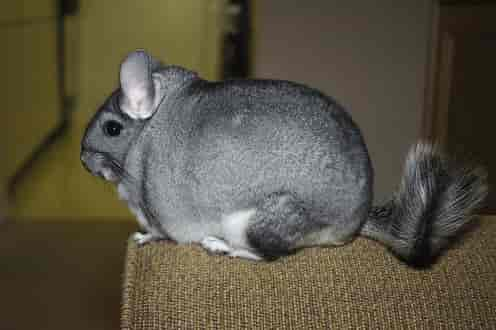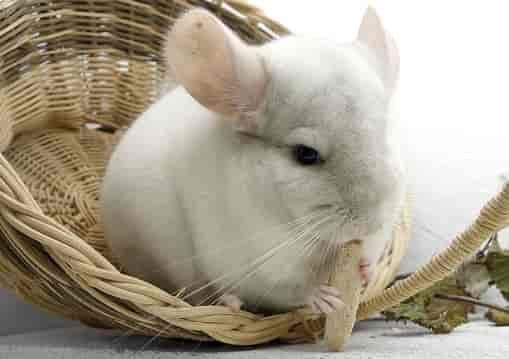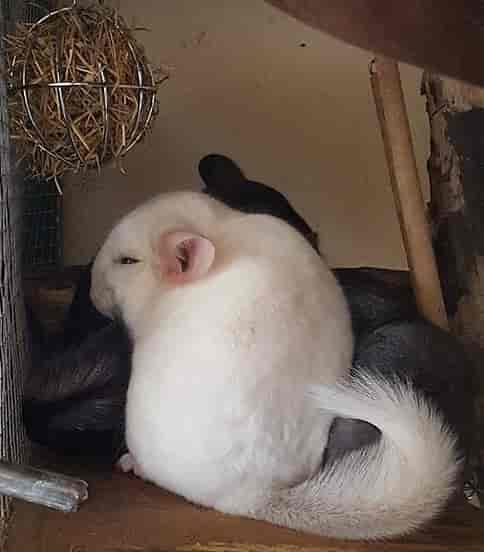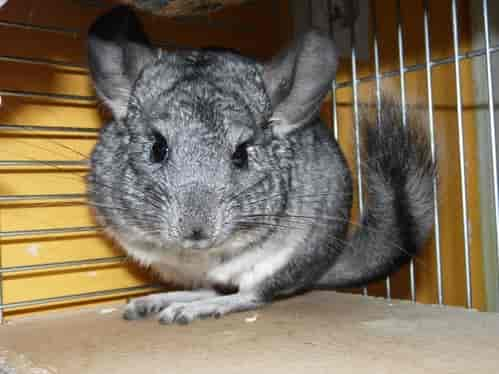Chinchilla pet
 |
| Chinchilla pet |
Are you thinking of buying a pet? Well, everybody loves to
keep a pet. Well, a pet can be that one thing you can turn to when everything
is going the other way. Pets will always keep you happy and want more in life.
They can make you happy even when you are down and think that pet
How many of us have actually
Today, getting exotic pets is no more a difficult task.
Knowing to take proper care of these pets is important. The Chinchillas of
South America is known
Some important points to bear in mind with regards to
Chinchilla as a pet
1. These rodents are most active during dusk and dawn.
Therefore day time be taken they are kept
2. The females are quite tend to in
comparison off the females are known
3. Female chinchillas mature at 7 months and can breed after
that. Their gestation period lasts for 111 days. They can mate up to 3 times a
year and bear 1-2 babies per litter.
4. These rodents prefer a lot of green grass and fibre in
their diet. They have a delicate digestive system therefore be given
5. Chinchillas must be handled it is recommended streak
Chinchilla animal
Many of you might have pets of your home. Snuggling up to
your pet dog is an experience out of the world indeed pet
We are talking about having a chinchilla as a pet. Wondering
what a chinchilla is? Yes, most of you have not heard about a female chinchilla
so let us help you understand how having a female chinchilla can help you. Of
course, we be surprised
Chinchilla information
Chinchillas are squirrel South America . They are slightly bigger in size as
are also known from 10-14
If you are thinking about what there is to know about these rodents.
. Active as compared to the males: Female chinchillas are
known
· Spraying urine: When ticked off or scared, we know female chinchillas to spray urine. They can spray urine from up to a foot
away. While the amount of urine sprayed is not much, it can still be annoying.
· Aggression: Female chinchillas are more aggressive as
compared to males. They show their aggression towards the same sex. Fights
between two female chinchillas can often be very dangerous.
· Maturity: The females mature at 7 months and can be
allowed
· Breeding: The gestational period of these rodents is 111
days. A female can conceive 72 hours after a litter. These rodents can mate up
to three times a year, producing 1 to 2 offsprings per litter. The number can
go up to 4 babies per litter in rare cases.
These rodents should be handled Utmost care should be taken they can be cared Of
course, you
Chinchilla facts
The name "Chinchilla" itself speaks about their
origin. Chinchilla are rodents from the great Andes
Mountains in South
America . Apart from the tamed ones, the wild rodents are not
limited Peru and Chile . They are
fairly active and cheerful animals, but they show most of their personality only
during the nighttime. Because they are nocturnal animals, they like to stay
calm and quiet during the daytime and act playful throughout the night. They
usually have a long life span; if their diet is properly structured
Chinchilla food
Food is a major area of concern for people who like utmost care should be taken appropriate are slightly different that are be fully satisfied fats they
Chinchillas as a pet:
 |
| Chinchilla pet |
People love to tame chinchillas because of some of their
unique qualities. They are adorable and bond closely with the people around
which they live. Like humans, they also suffer from mood swings. So, don't get
upset if sometimes your favorite pet doesn't allow you to cuddle. They don't
mind staying alone but sometimes they need to have their space so they can
roam freely. Just like kids, they need a lot of toys around them to play with
and keep them busy. They love hiding inside the boxes and are fond of
dust bathing. A dust bath is also important to keep their thick and soft fur in
good condition. They should not take baths in normal water; they should rather
roll in the special dust powder prepared out of fine pumice.
Chinchillas are great pets easily
Chinchillas that belong to the rodent family look a lot likes Andes
Mountains and are named Andes , "the
Chincha." Their personality resembles that of a squirrel but they are
slightly larger. Chinchillas have certain qualities that make them
great pets.
Chinchilla coat
Chinchillas diet
 |
| Chinchilla pet |
Talking about their eating habits, chinchillas consume very
little quantities of water and food. They feed on mostly roughage and their
meals should consist of is specially made proper care should be taken to be these should be avoided too
Chinchillas are nocturnal animal s Their
activities can be found dawn and they prefer to be
calm and peaceful during the daytime. Like humans, chinchillas also dislike changes;
Chinchillas are attractive and popular pets. Many people
prefer to take this furball
Chinchilla Lifespan
Chinchillas are a kind of pets are exposed
During their relatively long life, chinchs
Youngsters are ready to move immediately after birth. Baby
chinchillas eat solid food at the age of the age of
Dust bath for chinchilla
When you think of personal hygiene, you probably imagine a
shower, soap
Some owners might have an allergy to the dust, so people who
intend to buy a chinchilla have to consider this fact
Chinchilla care
Heatstroke, diabetes, and broken bones are among common
chinchilla health problems. Chinchs be placed
Problems with digestion are also very common. The first
thing an owner can do is provide the pet with balanced food or give the
chinchilla only hay. Liquid Vitamin C is also a good first aid option.
Chinchillas often suffer from uneven or overgrown teeth. To
prevent this problem, the chinch's parent has to provide his pet with enough hay
and wood chewing sticks.
These are some less known chinchilla facts everyone
should know before deciding to have an exotic small pet. If you already have
this creature at home, we hope you will find useful chinchilla information in
this article.
For more exotic pet updates, please click here.


